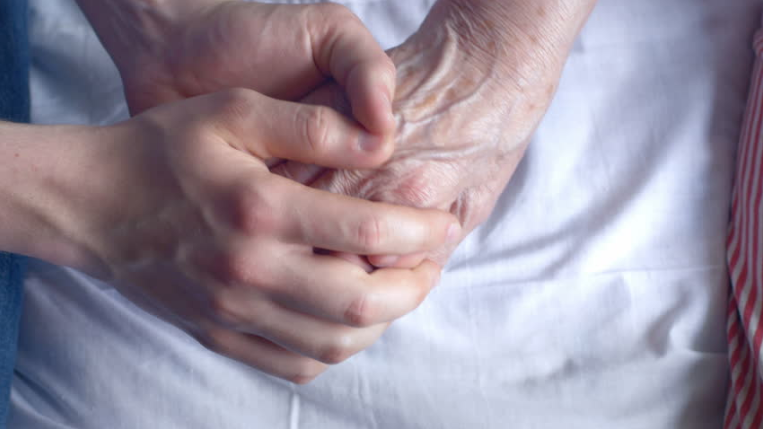The Impact of a Single Handshake
- Megan Burke
- Sep 9, 2019
- 3 min read
Updated: Mar 30, 2020
Pockets of pus in his belly, legs edematous, completely exposed and vulnerable.
Intubated and sedated, left with an open abdomen.
Doctors talking about him instead of to him.
Changing his dressing, he grabs my hand; squeezing it, whispers a gratuitous, “thank you.”

This was a patient I encountered while on my very first surgery rotation. He had been admitted to the VA SICU for a portal vein thrombosis, and during his hospital course, he acutely worsened with an uptrending white count and mental status changes. My first time meeting him was as he was rushed to an emergency exploratory laparotomy. We opened him up, and my resident tells me that it’s my job to “keep his shoes clean” since we knew the patient would lose a lot of blood. As I mentioned, his abdomen was full of these walled off abscesses. We cleaned him up the best we could and left him with an open abdomen and a wound vac. He subsequently required 3 more surgeries to wash out the belly and finally close his fascia.
The experience I decided to write about was when I went to change his wound vac one Saturday while I was on service. It was my first time changing one by myself, and I was still early on in my third year, so I felt awkward, nervous, and would periodically become lost in the hospital, feelings that are all too familiar during clinical rotations. I wanted to do a good job for this patient, so I asked the nurses to help me set up the procedure and gather my supplies while we gave the patient more pain medication to make it more bearable. As stated, he was intubated and somewhat sedated, but he was awake enough to acknowledge me and understand that I was going to do a dressing change. I was nervous and didn’t want to mess it up, and I knew he must be in pain; I made it a point to talk to him and let him know what was going to happen and that I would do my best to make it as painless as possible. Once the dressing change was finished and I was about to leave, he grabbed my hand. He smiled and let out a whisper letting me know that I had done a good job.
I followed this patient throughout his hospital course and subsequent wound vac changes, and I watched him regain his strength and personality. By the end of my time at the VA, he was being discharged home, and I was grateful to have provided him with some comfort during his stay in the hospital. I will forever treasure that moment when he grabbed my hand because it reminded me of the humanity behind all of our patients, something that can easily be forgotten when they are in the ICU (more machine than person) or in surgery (literally their insides on the outside). They have their stories to tell, and I really enjoy hearing them. It makes my work feel more meaningful and that I am actually changing someone’s life rather than just fixing their diagnosis.
Whose Behind This Story?
Megan Burke is a fourth year medical student at the University of Arizona College of Medicine - Phoenix. She was born and raised in Phoenix, attended Xavier College Preparatory for high school, and received her BS in Biology from Loyola Marymount University. She is pursuing a career in pediatrics and is specifically interested in childhood exercise, nutrition, and mental health. In her free time, she enjoys anything active (yoga, spin, and running) and spending time with her family here in the Valley.
Comments